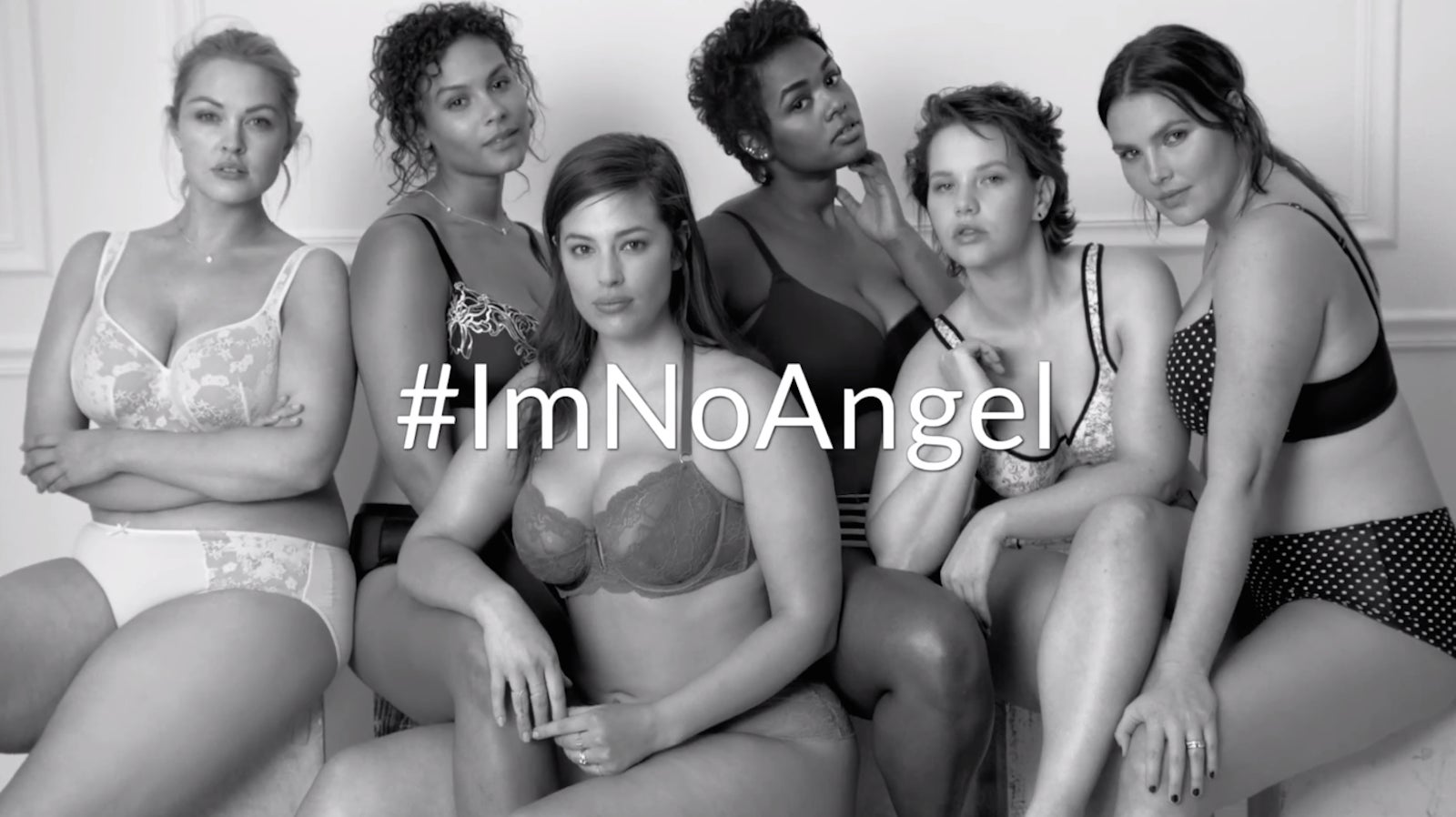Lane Bryant’s powerful body positive campaign is making Victoria’s Secret look outdated
Lane Bryant wants the world to know that sexiness doesn’t have to be size-specific.


Lane Bryant wants the world to know that sexiness doesn’t have to be size-specific.
Signaling a whole new round in the body positivity wars, the clothing brand is taking aim at traditional beauty standards with its latest advertising campaign, #ImNoAngel. The not-so-subtle reference to intimate apparel behemoth Victoria’s Secret was unveiled April 6 to promote Lane Bryant’s new lingerie line Cacique, which runs in sizes 12 through 28:
The women who wear Cacique know that sexy comes in many shapes and sizes. They’re no angels—and they own it. Join the women who are redefining sexy by posting your personal statement of confidence using the hashtag #ImNoAngel.
Starring prominent fuller-figured models like Ashley Graham, Marquita Pring, and Candice Huffine, the campaign is clearly trying to position itself at the forefront of the “real beauty” marketing trend. In particular, Lane Bryant has been working to rebrand a market traditionally labeled ”plus-size,” much to the chagrin of a growing number of bloggers, models and advocates.
“The demographics are changing, and that is all the more reason to change perception and talk about it as ‘her size,’ not ‘plus size,'” CEO Linda Heasley told Bizwomen in February. ”I wouldn’t want to call myself ‘plus size.'”
Originally founded in 1904 as a maternity line, the Columbus, Ohio-based retailer now boasts over 750 stores. Interestingly, both Lane Bryant and Victoria’s Secret were once owned by Limited Brands. (The iconic 1990s store The Limited, which Heasley helmed prior to 2013, was also a Limited Brand chain.) While Lane Bryant was spun off in 2002, Victoria’s Secret remains part of the L Brand conglomerate.
This bit of corporate trivia adds an interesting twist to the #ImNoAngel campaign, which is aesthetically quite similar to Victoria Secret’s 2014 marketing tagline, “The Perfect ‘Body.'” That effort fell largely flat, however, panned by critics who felt it was perpetuating an unrealistic ideal.
In contrast, Lane Bryant’s ads work because they differentiate themselves from the beauty queen ideal, while still maintaining the kind of positive, broad appeal so many social media users find irresistible. This is marketing 101, with a body positive spin.
In the same way that Apple targeted Microsoft and rental car company Avis targeted Hertz, Lane Bryant is making it easy for consumers to understand what makes them special, explains Tim Calkins, a clinical professor of marketing at Northwestern University’s Kellogg School of Management.
“There’s nothing apologetic about the Lane Bryant campaign, Calkins tells Quartz. “It’s aggressive and yet still positive.” The company pulls this off by painting Victoria’s Secret as outdated and misguided, rather than evil. It’s a deft move for a company trying to take advantage of the public’s attraction to positive interpretations of body image. ”All [the company is] saying is that the ideals that Victoria’s Secret celebrates are maybe not relevant or not right for everybody. [It’s] trying to portray Victoria’s secret as a niche brand that is out of touch.”
Judging by social media, this strategy appears to be paying off:
Of course, pop feminism does have its pitfalls. Dove’s pioneering 2004 Self-Esteem Project has since spawned countless other feel-good commercials seeking to redefine ”real beauty.” Many viral videos later, the Dove strategy is still a divisive issue among feminists who can’t seem to decide if the brand is a positive influence, an innocuous if vapid co-opting of feminist principles, or a hypocritical and damaging viewpoint that beauty is a woman’s most valuable attribute.
In any case, for the moment, social media is smiling on Lane Bryant’s fairly straightforward message about feeling sexy at any size.